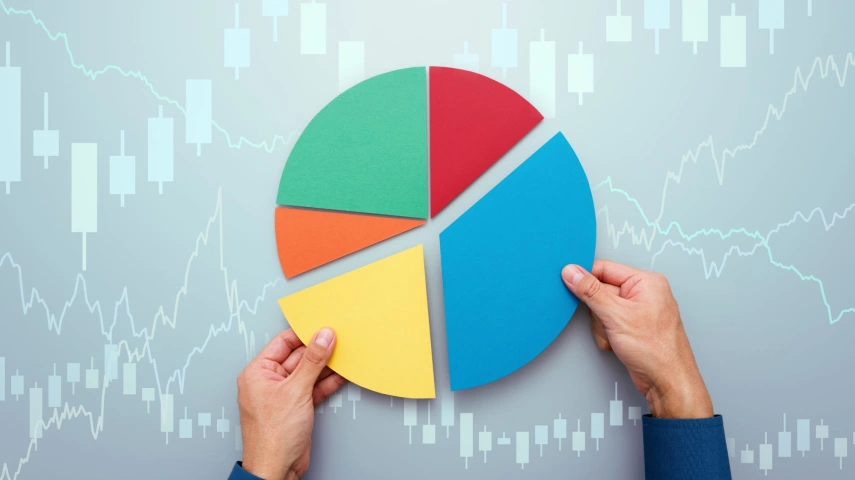Advisers warming to thematic ETFs for diversification and growth



Financial advisers are increasingly turning to thematic ETFs to tap into specific growth themes and portfolio diversification.
The majority of financial advisers are using ETFs in their client portfolios, according to research by VanEck, driven by evolving portfolio strategies and the superior performance of ETFs compared to active funds.
Stockspot analysis has also projected Australian ETFs to reach $500 billion in assets under management by June 2029, marking a 20 per cent annual growth rate, with advisers playing a “key role” in this growth.
Amid the rapid rise of Australia’s ETF market, thematic ETFs, investing in companies focused on specific trends or industries, have emerged, investing in areas like artificial intelligence and cloud computing, and more niche areas like video games, solar energy, hydrogen and defence.
In a market note in March, Global X observed there are now more than 40 thematic ETFs available in the Australian market, with a total of around $5.4 billion invested in them.
According to Manny Damianakis, head of sales at Global X Australia, while adviser uptake of such offerings has historically been limited, interest has grown in recent years, with advisers now exploring the potential of thematic ETFs to add value to their client portfolios.
“A lot of them are looking at traditional market cap benchmarks and the limitations of just buying, say the S&P 500 or the ASX 200, you’re not getting access to a lot of the areas that investors themselves are interested in,” Damianakis told Money Management.
“A good example would be, a lot of clients want the notion of being invested in big tech and artificial intelligence. If you’re buying the ASX 200 ETF, you’re not going to get a lot of exposure to that.”
Advisers are also often hesitant to buy direct global equities, he pointed out, with very few investing directly in global stocks.
“Buying an ETF is an easy way to access those themes in their portfolio,” he said.
“So, it is growing, but certainly a long way to go. Most of the adviser money still flows into what I’d say are more core or very simple exchange traded products.”
Cameron Gleeson, senior investment strategist at Betashares, agreed that there has been a gradual shift in portfolio construction compared to two decades ago.
“Traditionally, your Australian financial adviser, if you go back 15 years, might’ve been talking about buying a portfolio of blue chip Australian shares, and that has changed.
“Advisers are seeing the benefits of a low-cost diversified approach to using ETFs and typically, when you’re looking to build a core of your portfolio, you would look for really robust, diversified, low-cost funds that could provide good core performance,” he explained.
Advisers are now able to make the most of thematic ETFs as a satellite exposure, he said, with conversations emerging around the ways these offerings can be incorporated into an overall portfolio and the risk characteristics of its exposure.
“If you think about portfolio construction, trying to say minimise risk and generate stronger returns per unit risk, then we often find that a thematic fund or an industry/sector fund will have higher volatility than the broad market, but it may actually be quite useful in terms of diversification to add to my portfolio if it’s exposed to a specific risk, because in a way, part of diversification is trying to find things that move in very different directions,” Gleeson pointed out.
“So the conversations we have are about ‘what does your current portfolio look like? How much would you look to add to this satellite exposure? What’s the risk of that satellite exposure and how correlated, or similar, does that satellite exposure perform relative to your core portfolio?’, and if it moves in a really different direction, that can really help with diversification.”
Reflecting on themes garnering traction, he cited interest in technology, such as cyber security, artificial intelligence and robotics, as well as the firm’s global uranium ETF.
Damianakis also highlighted AI, cyber security and nuclear among key themes gaining adviser interest.
Additionally, he noted that crypto-focused ETFs, which have been met with significant interest this year among direct investors, are beginning to see a foothold with advisers, albeit to a much lesser extent.
“I’ve noticed, in the last three months, we’ve got a Lonsec investment grade rating on Global X 21Shares Bitcoin ETF (EBTC) and Global X 21Shares Ethereum ETF (EETH), and I’ve now seen advisers going to their platforms and our ETFs have been added to the platforms,” Damianakis said.
“That, to me, is the first sense that advisers may look to start engaging in this.”
However, he acknowledged there could be limitations when it comes to approval from licensees and approved product list providers who “need to be comfortable with the risk there”.
“What I’ve found with crypto is that it can polarise people. What I mean is, particularly in the advice community, there can be advisers that are staunchly against it and would say to their clients ‘don’t go near it’, whereas there are others who have a bit more research in this space and see it as potentially a diversifier and an alternative that can be tradable,” he explained.
Recommended for you
ASIC has released the results of the latest financial adviser exam, held in November 2025.
Winners have been announced for this year's ifa Excellence Awards, hosted by Money Management's sister brand ifa.
Adviser exits have reported their biggest loss since June this week, according to Padua Wealth Data, kicking off what is set to be a difficult December for the industry.
Financial advisers often find themselves taking on the dual role of adviser and business owner but a managing director has suggested this leads only to subpar outcomes.












